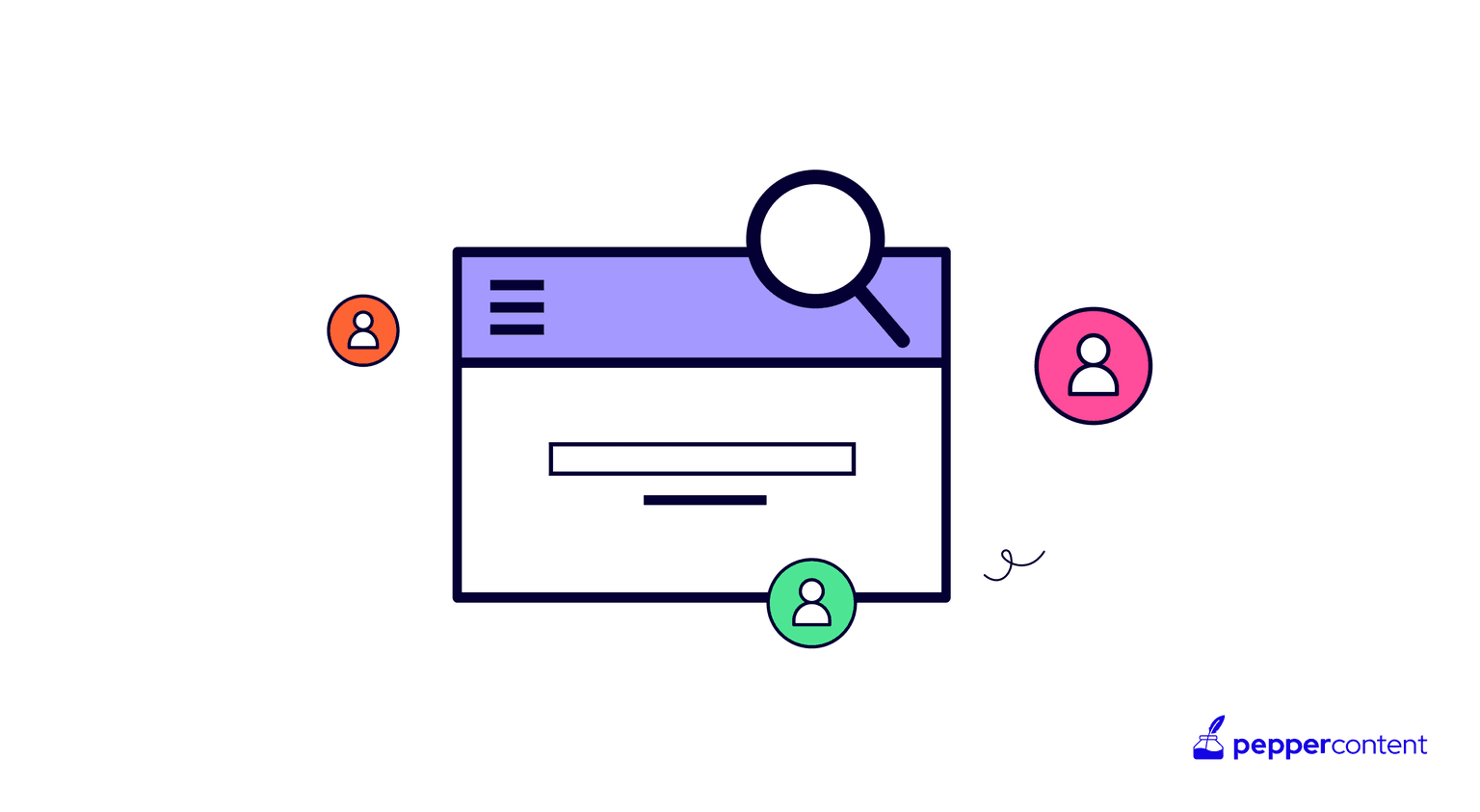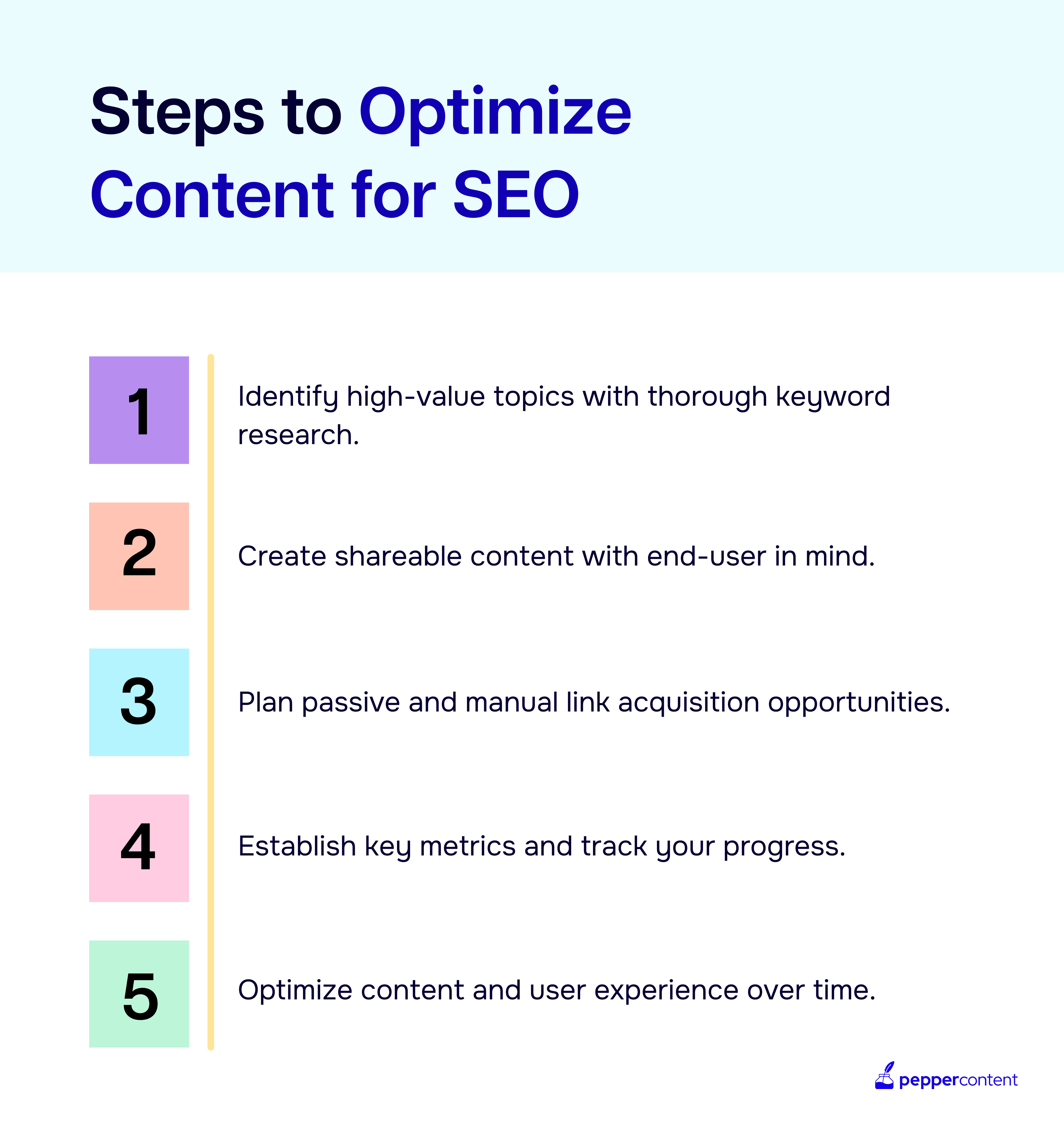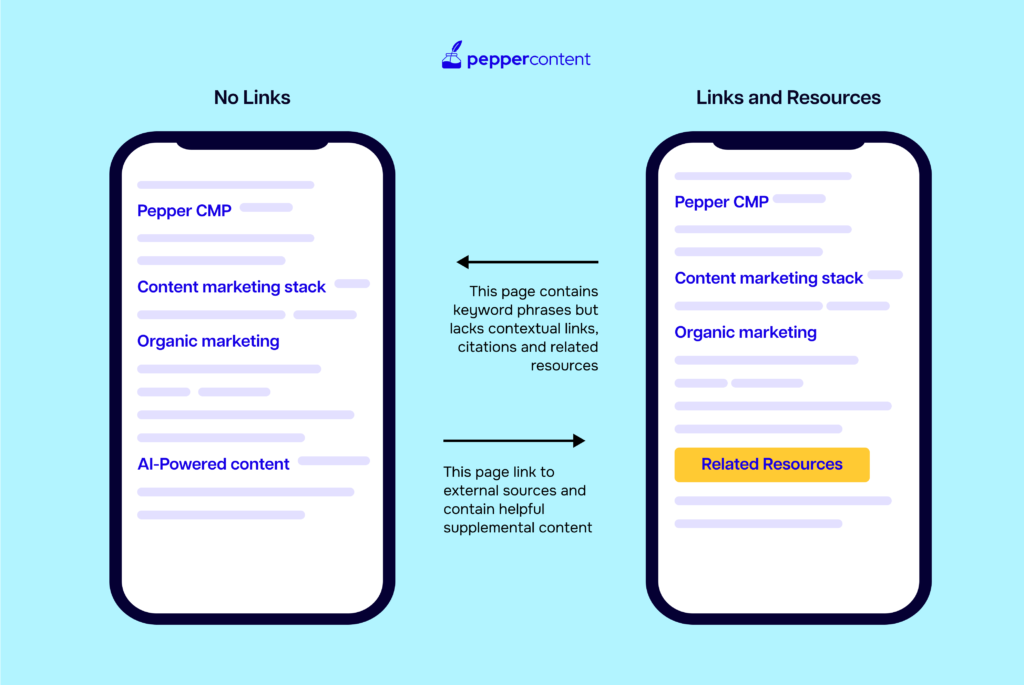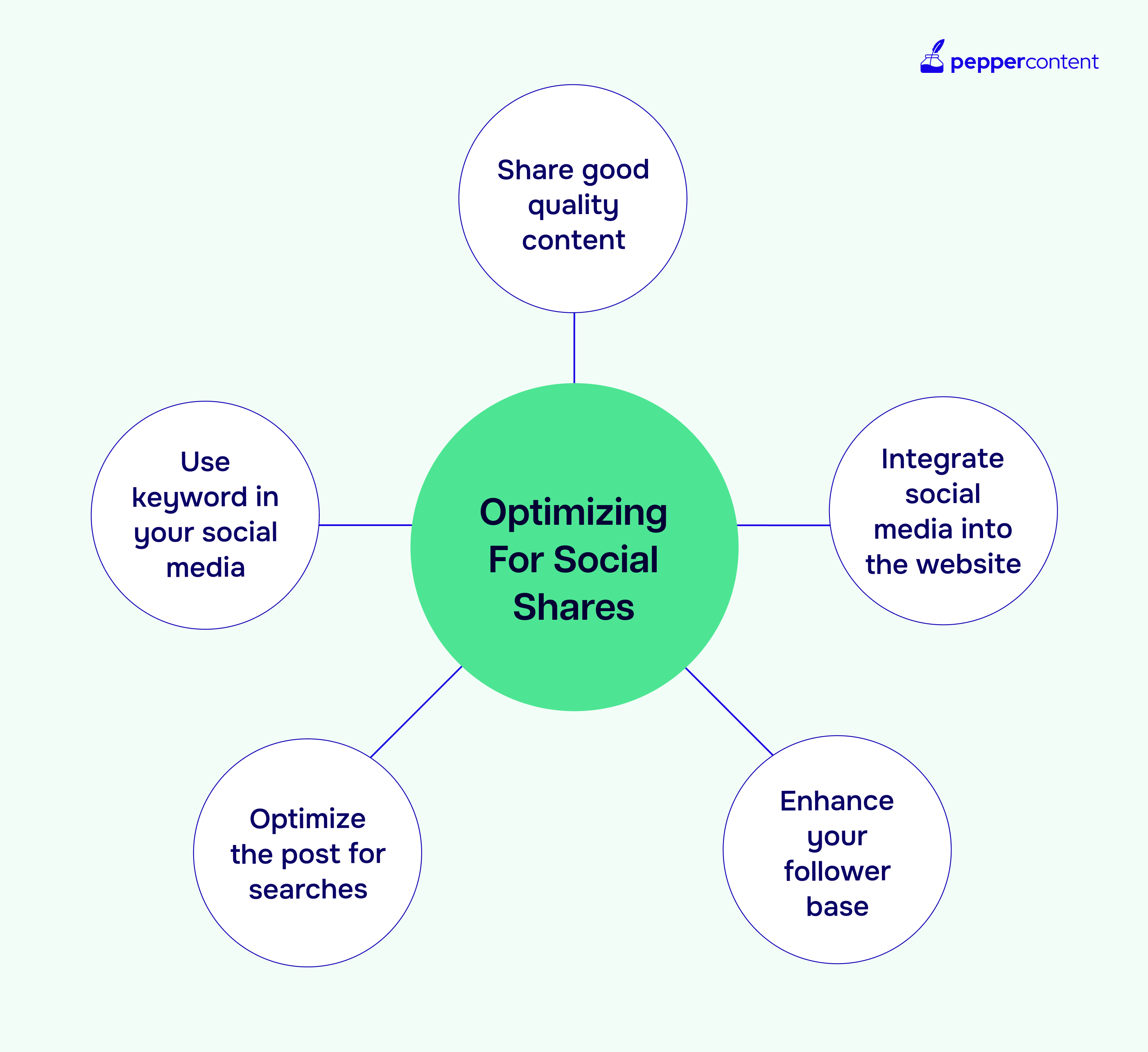Optimizing Content to Boost SEO and Conversions

Content optimization is the process of improving the quality and relevance of your content to achieve better search engine rankings, higher conversions, and more social media shares. In today’s digital age, where people are bombarded with a deluge of information every day, it’s essential to create content that stands out from the crowd.
Optimizing your content can help you achieve that goal. It involves a range of techniques, including keyword research, on-page optimization, persuasive copywriting, and social media engagement. By implementing these tactics effectively and following our content optimization guide, you can improve your chances of success in the highly competitive world of online marketing.
The benefits of content optimization are many. It can help you attract more traffic to your website, generate more leads and sales, improve your brand visibility and authority, and build stronger relationships with your target audience. In short, if you want to succeed as a content marketer, content optimization should be a top priority.
What is Content Optimization?
Content optimization refers to the process of enhancing your content to make it more relevant and valuable to your target audience. The goal is to improve the visibility and ranking of your content on search engine results pages (SERP) by aligning with user intent.
To rank higher on SERP, search engines evaluate different factors such as keyword relevance, content quality, user experience, and website authority. The ultimate goal is to provide users with high-quality and relevant content that fulfills their search queries.
For example, if someone types “best running shoes,” Google’s algorithm will show results for web pages that have content related to running shoes, including reviews, recommendations, and other relevant information. Hence, creating valuable content that matches user intent and satisfies their search query is crucial for effective content optimization.
Search engines also look at other factors such as backlinks, page speed, mobile-friendliness, and social signals when ranking web pages. Therefore, optimizing your content should not only focus on keywords but also ensure a positive user experience across different devices and platforms.
How to do content optimization? Firstly you need to figure out what you want your text to be optimized for. Below or details on optimizing for SEO, conversions, and lastly, social shares.
How to Optimize for SEO
Wondering how to do content optimization in SEO? To rank high on search engines, optimizing your content for SEO is crucial. You need to implement best practices in keyword research and on-page optimization to increase your chances of appearing at the top of search engine results pages (SERPs).

One of the most important aspects of SEO optimization is keyword research. You need to identify high-performing keywords that are both relevant to your content and have a decent search volume. Using tools like Google Keyword Planner can help you find these keywords and analyze their relevance, competition, and search volume.
Once you’ve identified your target keywords, it’s important to optimize your content around them. This includes optimizing meta tags, headers, images, and URL structure. Additionally, including keywords naturally throughout the content can help search engines understand what your content is about.
Another key aspect of on-page optimization is ensuring that your content is high-quality and comprehensive. According to Neil Patel, longer-form content tends to rank higher on search engines because it provides more value to readers.
Moreover, backlinks from other authoritative websites can boost your page ranking significantly. So it’s important to focus on building high-quality backlinks by creating shareable content that people want to link back to.
A well-executed SEO strategy can significantly boost your page ranking and organic traffic. By implementing best practices in keyword research and on-page optimization, you’ll be well on your way to hitting the top spot in SERPs.
How to Optimize for Conversions
To optimize your content for conversions, you need to focus on crafting persuasive copy that resonates with your audience and motivates them to take action. Here are some tips on how to do it:
Firstly, make sure you know your audience inside out. This means researching their pain points, needs, and preferences. Once you have a clear understanding of your target audience, tailor your messaging accordingly. Use language that speaks directly to them and addresses their specific challenges.
Secondly, write compelling headlines and calls-to-action (CTAs). A good headline will grab your readers’ attention and entice them to keep reading. CTAs, on the other hand, should be clear, actionable, and placed in strategic locations throughout your content.
Lastly, adopt a product-led approach to your writing. Highlight the unique value proposition of your product or service and its features/benefits. Ensure that the copy emphasizes how your product or service solves a particular problem that is specific to your target audience.
To illustrate the effectiveness of these tips in practice, let’s look at an example from CXL’s case study: changing the button text from “Learn More” to “See Plans & Pricing” increased clicks by 78%. This highlights the importance of optimizing CTAs for conversions.
To further emphasize the impact of persuasive copywriting on conversions, consider this: according to a study conducted by Conversion Rate Experts, an optimized homepage can increase conversion rates by up to 113%. Such an impact demonstrates how critical it is for marketers to master the art of persuasive copywriting.
Connect with Pepper Content for SEO blog writing or any kind of related services.

How to Optimize for Social Shares
Social media has become a vital part of content marketing, and optimizing your content for social shares can boost your online visibility and reach. To optimize your content for social media, it’s important to understand the role of emotional appeal and storytelling.
One effective way to create an emotional connection with your readers is by sharing stories, anecdotes, or personal experiences that align with your brand’s mission and values. This can help humanize your brand and make your content more relatable to your target audience.
Another way to increase social engagement is by using powerful visual elements like images, videos, or infographics. According to Buzzsumo, content with at least one image gets 94% more views than articles without images. Using visually appealing graphics can help grab attention and improve the chances of users sharing your content.

To encourage engagement on social media platforms, include social sharing buttons on your website or blog. This makes it easy for users to share your content across their social networks. Additionally, you can participate in online communities related to your industry or niche, which can help increase the reach of your content and attract new followers.
Final Words
So, you’ve just learned the ins and outs of content optimization. By following the tips outlined in this content optimization guide, you can easily boost your SEO ranking, increase conversions, and encourage more social media shares.
Remember to always keep your target audience in mind when crafting your content. Whether you’re writing copy that persuades visitors to buy your product or creating an emotional story that resonates with readers, it’s important to stay true to your brand voice and messaging.
Now that you know the best practices for content optimization, it’s time to put them into action. Good luck!
FAQS
1. What is Content Optimization?
Content optimization is the process of improving your website’s content to make it more visible, engaging, and valuable to your target audience. This can include optimizing your content for search engines, conversions, and social media sharing.
2. Why is Content Optimization important?
Content optimization is essential because it helps your website rank higher in search engine results pages, attracts more traffic to your site, engages visitors with high-quality content, and ultimately converts them into paying customers.
3. How can I do Content Optimization in SEO?
To optimize your content for SEO, you need to research relevant keywords and incorporate them naturally throughout your content. You should also optimize meta tags, headers, images, and URL structure, and ensure that your content provides valuable information that satisfies user intent.
4. How can I do Content Optimization for Conversions?
To optimize your content for conversions, you need to write persuasive copy that speaks directly to your target audience, and highlights unique value propositions and benefits while addressing customer pain points through your messaging.
5. How can I do Content Optimization for Social Shares?
To optimize your content for social shares, you need to appeal to readers’ emotions by including stories or personal experiences combined with powerful visual elements like images or videos. You should also encourage engagement through social media by including social sharing buttons on your website or blog and participating in online communities related to your industry.
Latest Blogs
Learn how to rank on AI search engines like ChatGPT, Perplexity, and Gemini by optimizing your content for authority, structure, and relevance. Stay ahead in AI-driven search with this strategic guide.
Explore the best healthcare SEO services for your medical practice. Improve online visibility and effectively reach more patients in need of your services.
Discover top social media agencies specializing in banking solutions, enhancing financial services and driving engagement.
Get your hands on the latest news!
Similar Posts

Organic Marketing
8 mins read
Oops, I Think I SEO’d Too Much! What is Search Over-Optimization and How to Fix It

Organic Marketing
9 mins read
What is AMP? A Beginner’s Guide to AMP Pages & SEO

Organic Marketing
11 mins read